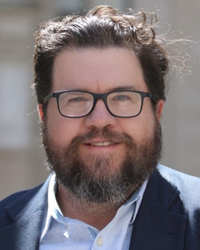As school district leaders continue to worry about students’ college and career readiness, a new survey finds that less than half of students from traditionally underserved populations believe education after high school is necessary.
The new survey conducted by ECMC Group, in partnership with VICE Media Group, surveyed more than 1,000 high school students ages 14-18 from low-income, first-generation and BIPOC (Black, Indigenous and people of color) backgrounds and found that only 45 percent believe education after high school is necessary, compared to 52 percent of all high schoolers.
In addition, only 8 percent feel fully prepared to make the decision of what to do after high school.
This study is the latest in a series of national surveys conducted since February 2020 to uncover insights from high schoolers about their academic and career plans after high school. The previous five surveys gathered information from a cross-section of more than 5,000 students from across the country.
The latest survey, conducted in October 2022, focused specifically on gathering insights from historically underserved high school student populations. The data is part of ECMC Group’s Question The Quo campaign, designed to empower Gen Z teens to take the education and career path that is right for them.
“This latest round of data provides a clearer picture of the issues and barriers faced by our most under-resourced students as they seek to determine their future trajectory,” said Dan Fisher, president and CEO of ECMC Group. “With this information, we have an opportunity to not only hear the concerns but develop solutions that will enable these students to persist and thrive in the future.”
The survey also found that 83 percent of students surveyed feel pressure—often self-directed—to pursue a four-year degree, but more than half (53 percent) are open to a path other than four-year college, and nearly 60 percent believe they can be successful without a four-year degree.
As they ponder their future, most would like their high school to provide guidance on questions about finances (62 percent), support for their mental and physical health (48 percent), identifying postsecondary education options (46 percent), and managing future debt (37 percent) or handling unexpected costs (37 percent).
- SEO Powered Content & PR Distribution. Get Amplified Today.
- Platoblockchain. Web3 Metaverse Intelligence. Knowledge Amplified. Access Here.
- Source: https://www.eschoolnews.com/innovative-teaching/2023/04/06/underserved-students-post-high-school-education/
- :is
- 000
- 1
- 2020
- 2022
- 8
- a
- About
- academic
- across
- addition
- After
- Ages
- All
- and
- ARE
- AS
- At
- author
- backgrounds
- banner
- barriers
- BE
- believe
- BIPOC
- Black
- by
- Campaign
- CAN
- Career
- Center
- ceo
- clearer
- College
- color
- compared
- Concerns
- conducted
- continue
- Costs
- country
- data
- Debt
- decision
- Degree
- designed
- Determine
- develop
- Director
- district
- ed
- Editorial
- Education
- empower
- enable
- faced
- February
- February 2020
- Finances
- finds
- focused
- For
- found
- from
- fully
- future
- gathering
- Gen
- Gen Z
- graduate
- Group
- Group’s
- guidance
- Half
- Handling
- Have
- Health
- hear
- height
- High
- historically
- HTML
- http
- HTTPS
- identifying
- in
- information
- insights
- issues
- journalism
- jpg
- latest
- leaders
- like
- make
- managing
- Maryland
- Media
- media group
- mental
- more
- most
- National
- nearly
- necessary
- New
- october
- of
- on
- open
- Opportunity
- Options
- Other
- part
- Partnership
- path
- People
- percent
- physical
- Physical health
- picture
- plans
- plato
- Plato Data Intelligence
- PlatoData
- ponder
- populations
- Posts
- prepared
- president
- prestigious
- previous
- provide
- provides
- pursue
- question
- Questions
- Readiness
- round
- s
- Said
- School
- Seek
- Series
- since
- Solutions
- specifically
- Student
- Students
- Study
- successful
- support
- Survey
- surveyed
- Take
- Teens
- that
- The
- The Future
- their
- Them
- These
- Thrive
- to
- traditionally
- trajectory
- uncover
- underserved
- Unexpected
- university
- University of Maryland
- URL
- Vice Media
- What
- will
- with
- without
- would
- zephyrnet
















